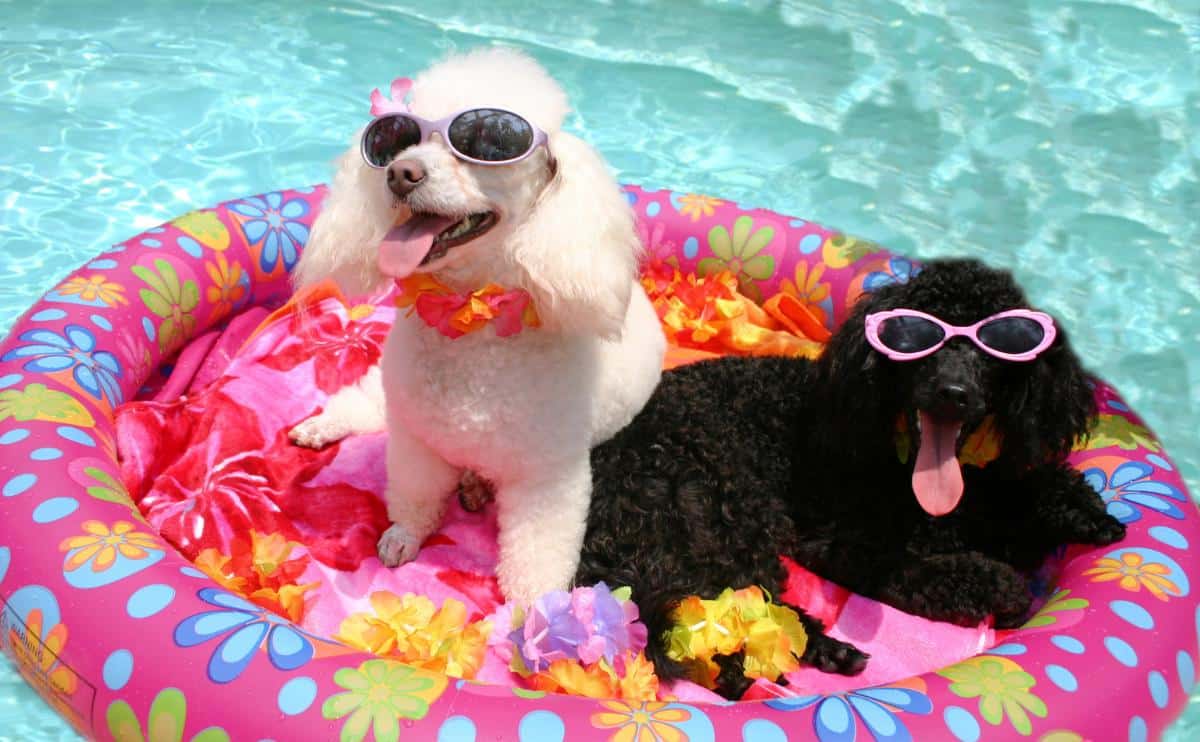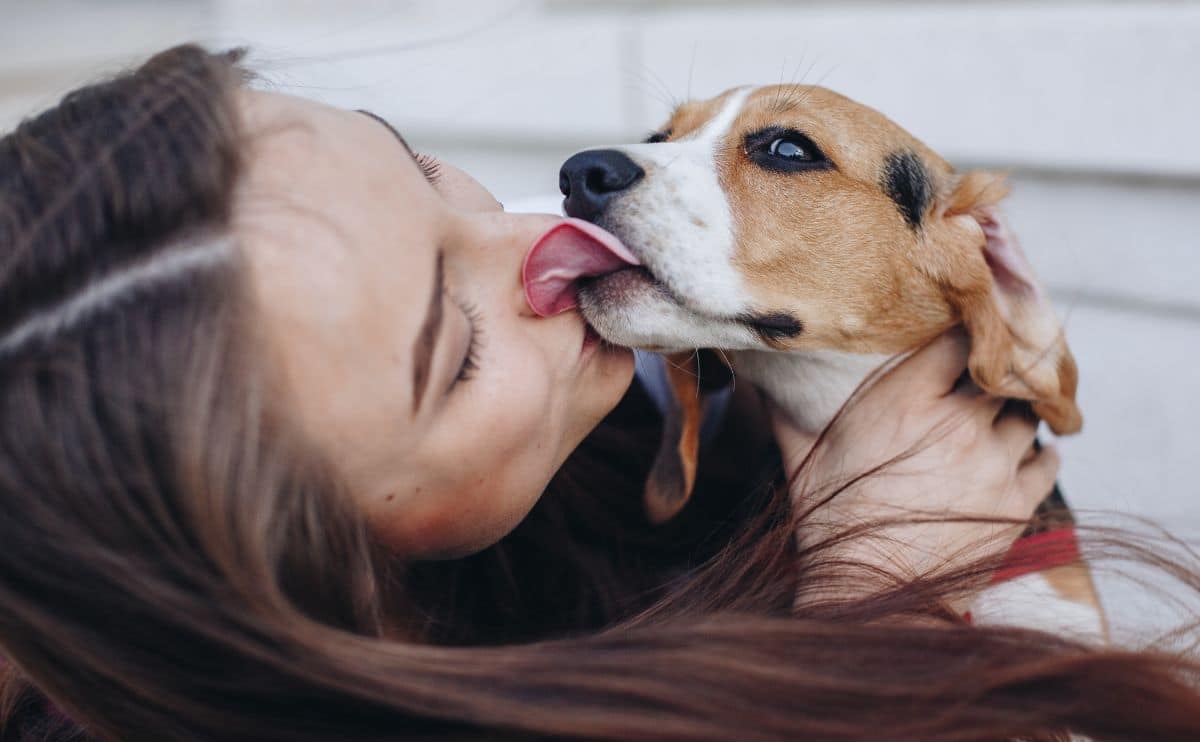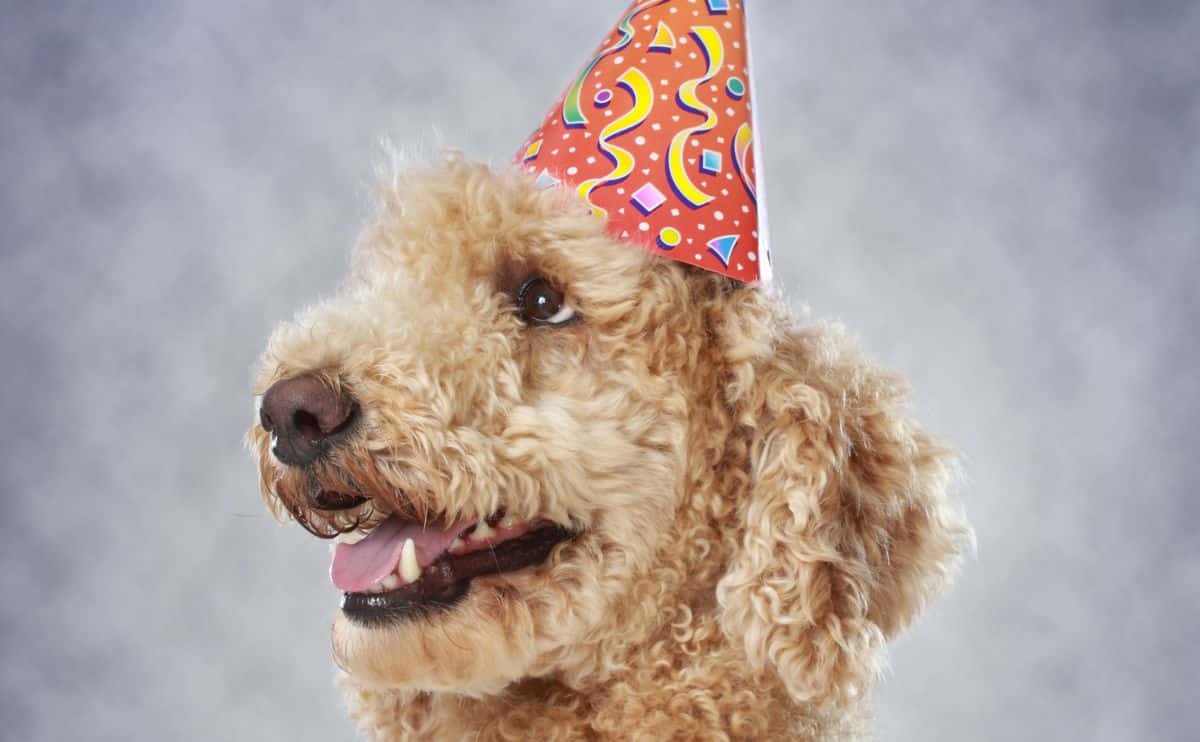How To Prepare Your Dog For Your New Baby
When you purchase through links on our site, we may earn a commission. Here’s how it works.
Bringing your newborn home? Your dog might not be as thrilled as you think. Don’t worry, this doesn’t mean disaster is around the corner, but it does mean you need a solid plan. Introducing your dog to your baby isn’t just cute Instagram moments and wagging tails. It’s a big transition, for both of you. From sudden crying sounds to new routines and unfamiliar smells, even the calmest pup can feel confused or left out.
Table of Contents
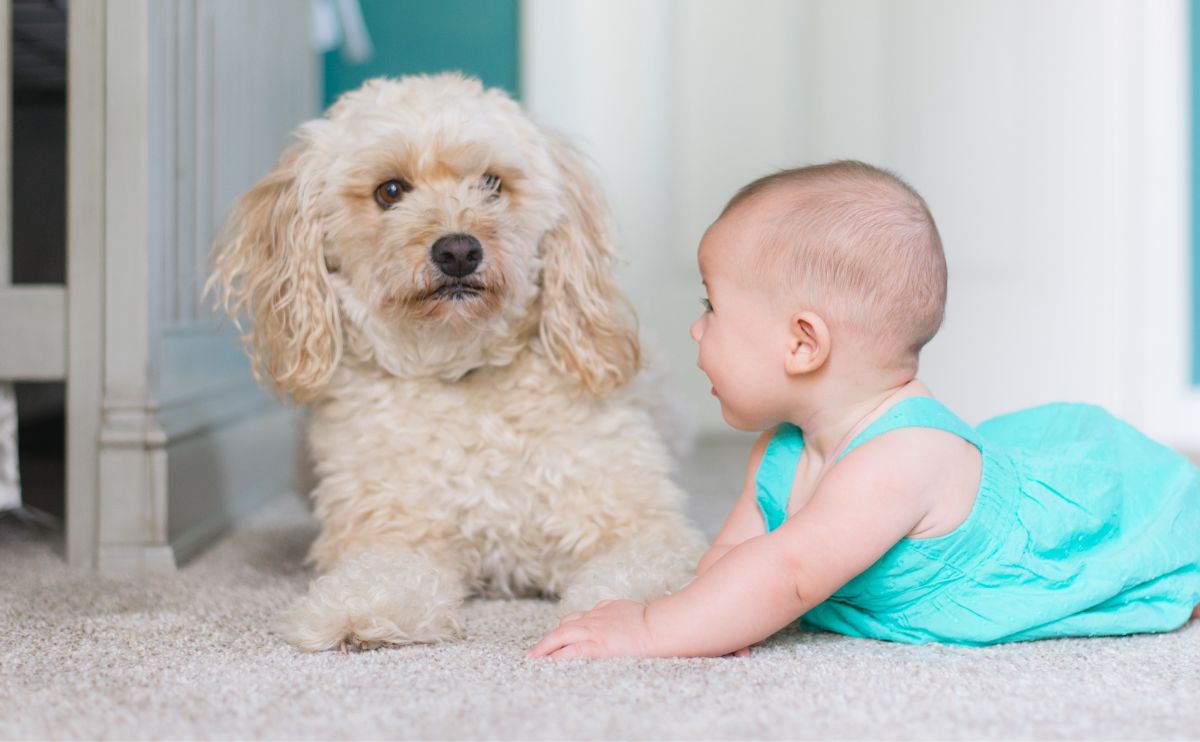
In this guide, you’ll learn exactly how to prepare your dog for a baby, the do’s and don’ts of the first introduction, and what to watch for in those crucial early days. Whether your dog’s a snuggly Golden Retriever or a high-energy terrier, I’ve got the expert-backed tips you need to keep tails wagging and babies safe.
Why Introducing Your Dog To Your Newborn Matters
Let’s be real, your dog was your first baby. Now, there’s a tiny human entering the mix, and everything is about to change. How you handle that first introduction matters more than you might think. Not just for safety, but for building a healthy, lifelong bond between your pup and your baby.
Dogs are creatures of habit. Sudden changes such as new smells, loud crying, and less attention, can stress them out. And when a dog feels confused, anxious, or displaced, their behavior can shift. Sometimes it’s subtle: hiding under the couch, refusing meals, ignoring commands. Other times? It can escalate into barking, resource guarding, or even snapping. That’s why preparation is key.
Early planning and behavior training play a major role in preventing pet-related incidents with newborns. Dogs don’t automatically understand that this fragile, noisy bundle is part of the pack. They need guidance, structure, and reassurance.
This isn’t about fear, it’s about setting everyone up for success. Done right, your dog can become your baby’s protector, playmate, and best friend. But it starts with you, the leader, helping your pup understand: “This new human? They’re family now.”
By the end of this guide, you’ll know exactly how to prepare your dog for a new baby, introduce them safely, and navigate the early days like a pro. All with less stress and more wagging tails.
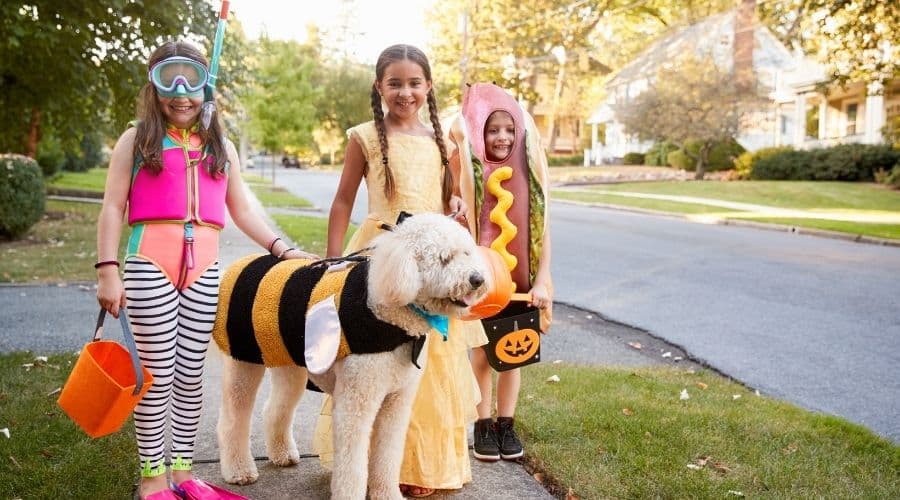
Health & Emotional Benefits Of Raising Kids With Dogs
Sure, dogs are cute, but did you know they’re also good for your kid’s brain, heart, and emotional growth? Seriously. Raising a child alongside a dog isn’t just wholesome, it’s backed by science.
According to the Animal Health Foundation, studies have shown that kids exposed to cats and dogs as infants have significantly less risk of developing allergies and asthma later in life. Their immune systems actually get stronger because they’re exposed to more diverse microbes early on.
But it’s not just about physical health. The emotional benefits? Huge.
Having a dog teaches responsibility, empathy, and emotional regulation, especially as your baby grows into a toddler. Even before your child can talk, they’ll be watching and learning from how you interact with your pet. They’re absorbing kindness, patience, and the concept of caring for another living being.
The American Academy of Child and Adolescent Psychiatry notes that pets can teach children important life lessons about responsibility, trust, love, compassion, loss, and empathy, as well as improving a child’s self-esteem and self-confidence.
And let’s not forget the comfort factor. Dogs can be a calming presence during stressful moments like late-night crying fits or postpartum blues. That tail wag or warm cuddle? It makes a difference, for both baby and you.
In addition to the physical benefits of pet ownership, Having pets in the home has also been shown to reduce blood pressure, alleviate stress, and even improve depression. These are benefits that the whole family can enjoy.
Quick Benefits At A Glance
- Stronger immune systems in children
- Reduced risk of allergies and asthma
- Boosted emotional intelligence and empathy
- Built-in companion for play and comfort
- Teaches early responsibility and routine
So yes, your dog is more than a furry roommate, they’re a built-in emotional support system for your growing family. And the bond between dogs and kids? It starts sooner than you might think.
Before Baby Arrives: How To Prepare Your Dog For A Newborn
You’re nesting for the baby, but don’t forget your dog’s going through a lifestyle shakeup, too. Setting up your home in a way that works for both your dog and your newborn can prevent future stress, accidents, and turf wars.
The key to a smooth baby-and-dog introduction? Start early, before the baby even shows up at your front door. This isn’t just about teaching your dog a few new tricks. It’s about shifting routines, setting new boundaries, and making the transition feel natural, not stressful. This isn’t about just dog-proofing or baby-proofing, it’s both. And doing it before baby comes home gives everyone time to adjust.
Wondering how to prepare your dog for a new baby? These 9 expert-backed tips will help you introduce your dog to your newborn safely, reduce anxiety, and create a calm, baby-friendly home environment from day one.
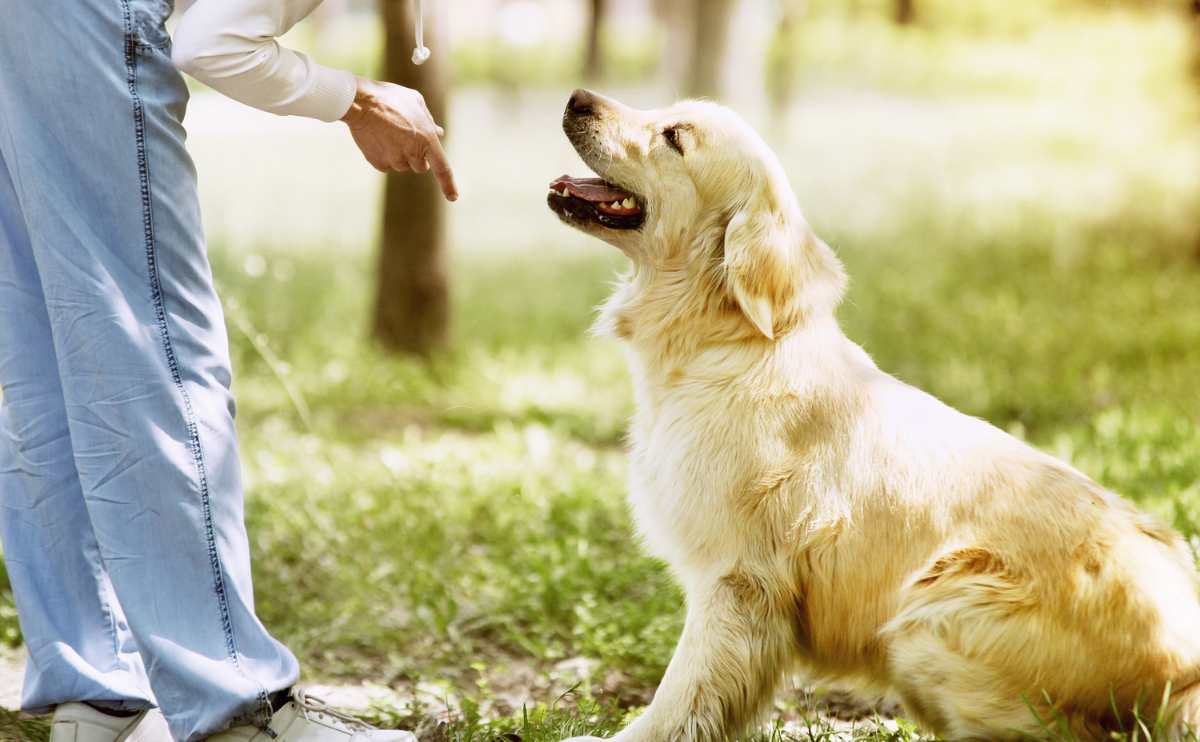
1. Teach New Commands
Let’s start with the basics. If your dog doesn’t already know basic commands like “go to your bed” or “gentle,” now is the time to teach, or reinforce, them. These cues are lifesavers when you’ve got your hands full with a newborn. In addition to sit, down, wait, stay and settle, which all help your dog control their impulses, they should also know leave it and drop it. These obedience commands will help when the dog wants baby’s play toys as their own. Other important skills to teach your pup around a baby are no jumping up.
2. Crate Training
Even the most social dog needs downtime. Set up a calm, quiet space where your dog can escape the chaos. Especially when visitors drop by or baby gets loud. Think of it as their own nursery retreat. If you haven’t crate trained your dog, you should consider it with a newborn coming. The crate can be a safe, secure place for dogs, and a place for your pup to go if your eyes aren’t on your newborn, even for a few moments.
Make their crate cozy with a bed, a favorite toy, and access to water. This tells your dog, “It’s okay to step away. You’re safe here.” Creating a safe retreat space is important for everyone. By prepping your home with your dog’s needs and your baby’s safety in mind, you’re creating a peaceful, well-managed environment. You’re not just sharing a home, you’re building a shared routine that works for the whole pack.
3. Introduce Baby Noises
Also, start exposing your dog to baby sounds. Crying, giggling, even the rustle of a diaper bag, these are all foreign to your dog. Use recordings of baby noises and play them at different times of day. Reward calm behavior with treats and praise. This kind of desensitization can make a huge difference when the real thing arrives.
If your pup doesn’t adjust well to new sensory triggers in your home, you should try to acclimate him a couple of months before your due date to the changes coming. Some experts suggest purchasing a baby doll that cries and moves like a newborn to get your dog used to a different home environment. Place the doll on the floor, in the crib or hold the doll, so your dog gets a sense of what’s coming.
4. Introduce Baby Equipment Gradually
Your dog might not react well to that rocking swing, musical mobile, or stroller the first time they see it. That’s normal, these things move, make noise, and invade space. Start using these items now, before the baby’s in them. Let your dog sniff, watch, and get used to them while staying calm. Practice walking the stroller on short routes around the house or block to desensitize your pup before baby joins.
5. Adjust Your Dog’s Schedule Early
Newborns have no respect for your dog’s routine, and let’s be real, neither will you in those first few weeks. Start shifting your dog’s walk times, feeding schedule, and play sessions now, so they don’t associate sudden changes with the baby’s arrival. Consistency (even if it’s a new kind of consistent) is calming for dogs.
6. Revisit House Rules & Boundaries
Does your dog currently jump on the couch, sleep in your bed, or bolt to the door every time someone walks in? If any of that might become an issue with a baby around, start setting new boundaries now. Use baby gates, crate training, or closed doors to begin creating “off-limits” zones like the nursery or changing table area.
And if you’re planning to keep the dog out of certain baby zones, do it before baby arrives. This helps avoid resentment or confusion.
7. Create “Yes” and “No” Zones
Consider some of the changes you might need to make with your new family member. Decide where your dog is welcome and where they’re not. Do you want the dog sleeping on the bed with you anymore? Will they still be welcome on the couch and other furniture if your baby is there? Consistency is key. Use positive reinforcement, not punishment, to teach boundaries.
Has your dog had access to your new nursery? If the nursery or changing area is off-limits, start reinforcing that now using baby gates or closed doors. The Kennel Club and many others recommend using gates to restrict entry to their room without shutting them off completely.
8. Organize Gear To Avoid Clutter & Conflict
Your house is about to fill up with swaddles, bottles, diapers, toys, and probably a whole lot of pet hair. Keeping baby gear and dog gear separate helps prevent confusion and potential safety issues.
- Store dog food, treats, and toys out of reach from curious little hands.
- Keep diaper pails sealed and baby snacks off the floor (yes, your dog will absolutely try to snack on those).
- Place your dog’s bowls in a low-traffic area to avoid accidental tipping or guarding behavior.
We have a guide on baby-proofing your dog’s bowl, because I guarantee that’ll be the most fascinating object once your little one starts crawling.
9. Use Baby Scents & Objects For Early Familiarization
Dogs rely heavily on scent. Before the baby comes home, introduce items like baby wipes, lotion, diapers, and even clothes washed in baby detergent. Let your dog sniff them while offering calm praise. That way, when the baby arrives, the scent won’t be totally foreign.
You can also start setting up the nursery, stroller, swing, and other baby gear now. Allow your dog to explore these items at their own pace so they’re not overwhelmed when the baby’s using them.
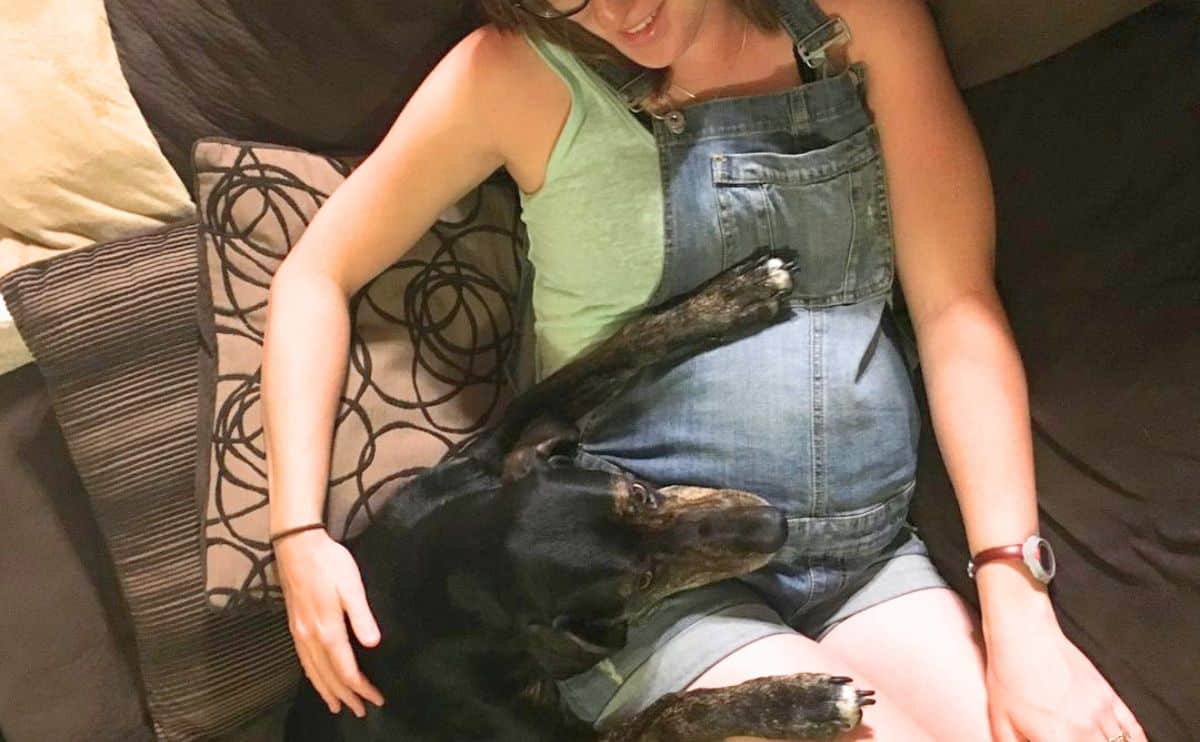
Our Personal Experience With Prepping For A Newborn
When I was pregnant, I did all the “prep” things for my dog including playing baby crying sounds, setting up the nursery early, walking Bonkers through our new routine, even practicing with baby gates. A family friend laughed and told me I was being way over-the-top.
But honestly? That preparation made all the difference.
By the time our little girl arrived, Bonkers was already familiar with the changes. He didn’t panic at the crying, didn’t barge into off-limits areas, and settled into the new routine with zero drama. The transition was smooth and seamless. And while I’ll never know exactly how things would’ve gone if I hadn’t put in that work, I can say with full confidence that the training paid off.
If you’re expecting and wondering whether it’s “too much,” take it from me, it’s absolutely worth it.
– Emma Braby, Dog and Toddler Parent & Writer For Canine Journal
Bottom Line? You have nine months to get everything ready for your newborn, and preparing your dog for how your new family member will impact his lifestyle is crucial to an easier transition for your pup. Yes, there’s a lot of prepping to do all around, but your dog is an important part of your family, and there are certain issues you should address ahead of time. Once your newborn is home, your time and attention span will be limited, to say the least! And the more comfortable your dog feels before the baby arrives, the better the odds that the introduction (and everything that follows) goes smoothly.
The First Introduction: How To Safely Introduce Your Dog To Your Baby
This is the big moment, and yes, it matters. That first introduction between your dog and your newborn can set the tone for their entire relationship. No pressure, right? The good news is that with the right setup, it can go smoothly. The key is to keep things calm, controlled, and pressure-free, for both your dog and your baby.
So, wondering how to best introduce your dog to baby? There’s a key word here, and it’s slowly. Take baby steps when it comes to major changes in your home, especially if you have a dog that suffers from anxiety.
First Impressions: What To Expect
As a dog owner, you know they pick up on your own emotions and reactions, so keep this in mind when you first get home with your new family member. When you walk through your door with your new bundle of joy, make sure you’re happy and relaxed. Greet your dog as you normally would when coming home.
Your dog doesn’t need to sniff your baby’s face the second you walk in the door. In fact, don’t rush it. When you come home from the hospital, greet your dog alone first. They’ve missed you, and jumping straight into “new baby mode” can overwhelm them.
Once everyone’s calm, bring the baby in. Hold your newborn securely and let your dog observe from a distance. Watch their body language. Are they curious? Anxious? Overexcited? That first reaction tells you a lot about what they need next.
The Right Way To Make The Initial Introduction
Make sure your dog is leashed and someone else is handling them. If possible, go to a quiet place where there are no other distractions or noises so your dog doesn’t get anxious or riled up. Sit down with your baby in your arms and have your handler bring your pup just inside the room. Again, you should be relaxed and talk to your pup with a loving tone in your voice.
When your dog is calm and under control, either on a leash or in a relaxed sit, allow them to slowly approach. Let them sniff your baby’s feet or blanket while you gently praise and reassure. Depending on your dog’s general temperament, you may want to limit introductions to short periods of time and gradually get them used to their new brother or sister.
Keep interactions short, positive, and fully supervised. Use a calm voice and reward your dog for good behavior. The goal is to build positive associations with the baby from the start.
Important: Don’t force it. Some dogs need multiple short exposures before they feel comfortable. That’s totally normal.
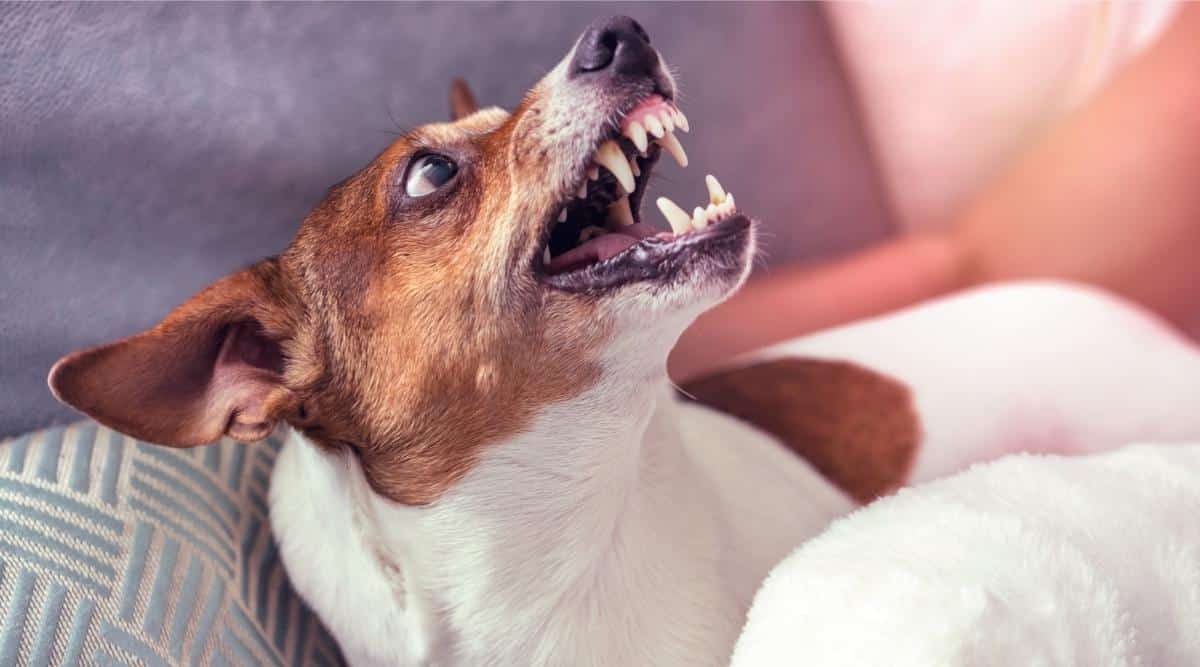
What If Your Dog Gets Aggressive?
Although a majority of dogs can be eased in with your lead, some have difficulty. If your pup shows any signs of aggression or other questionable behavior around your baby, separate dog and baby immediately – it’s time to seek professional help. Find a dog trainer or behaviorist in your area that has experience in addressing aggression in dogs. Don’t let your dog near your baby until you and your trainer are confident that the dog’s behavior has been modified.
Signs Of Stress Or Aggression To Watch For
Know what red flags to look for. These may include:
- Lip licking, yawning, or turning away
- Stiff body posture or raised hackles
- Growling, barking, or whining
- Avoiding the baby completely or fixating on them intensely
If you notice these behaviors, it doesn’t mean your dog is “bad”, it means they need more time and structure. Go back a few steps, give them space, and consider consulting a professional trainer who specializes in dog-baby introductions.
A calm, controlled first meeting sets the foundation for a positive relationship. The goal isn’t instant friendship, it’s mutual respect and trust. And remember: you know your dog best. Follow their cues, go at their pace, and never leave them alone with the baby, no matter how chill they seem.
Recognizing Jealousy, Anxiety & Depression In Your Dog
Your baby isn’t the only one adjusting to a brand-new life, your dog is, too. And while your pup may not be able to say “I feel left out,” their behavior might start screaming it.
It’s totally normal for dogs to experience a mix of emotions after a baby comes home. But knowing how to spot signs of dog anxiety, jealousy, or even depression early can make all the difference in keeping your household calm and safe.
What Does Dog Jealousy Look Like?
Jealousy often pops up when your dog notices they’re no longer the center of your attention. Look out for:
- Pushing between you and the baby
- Barking when you’re feeding or holding the baby
- Stealing baby items (toys, pacifiers, socks, you name it)
- Acting overly clingy or demanding
This is your dog trying to say, “Hey, remember me?” And they’re not wrong, you do need to carve out time for one-on-one connection.
Signs Of Anxiety After Baby Comes Home
Some dogs become anxious because of all the changes including schedules, smells, sounds, and less direct interaction. You might see:
- Pacing or panting for no clear reason
- Excessive licking or chewing (sometimes even their own paws)
- Whining or barking more than usual
- Following you obsessively from room to room
This isn’t “bad behavior”, it’s a stress response. Your dog may need more reassurance and structure as they adjust.
Can Dogs Get Depressed When A Baby Arrives?
Yes, it’s possible. Just like humans, dogs can show signs of depression when their environment changes drastically. Some common symptoms include:
- Loss of appetite
- Low energy or lack of interest in play
- Sleeping more than usual
- Avoiding both you and the baby
If this lasts more than a couple of weeks, talk to your vet. Sometimes a shift in routine, increased enrichment, or behavioral support can help your dog bounce back.
What You Can Do
- Stick to routines when possible, predictability helps calm nerves
- Give your dog dedicated attention each day (even 10–15 minutes helps)
- Use puzzle toys, slow feeders, or gentle scent games to keep their mind busy
- Reward calm behavior around the baby instead of correcting frustration
Your dog isn’t acting out, they’re trying to cope. Recognizing emotional shifts early gives you the chance to support them before frustration turns into a problem. After all, they’re family, too, and they just need time to adjust to their new little packmate.
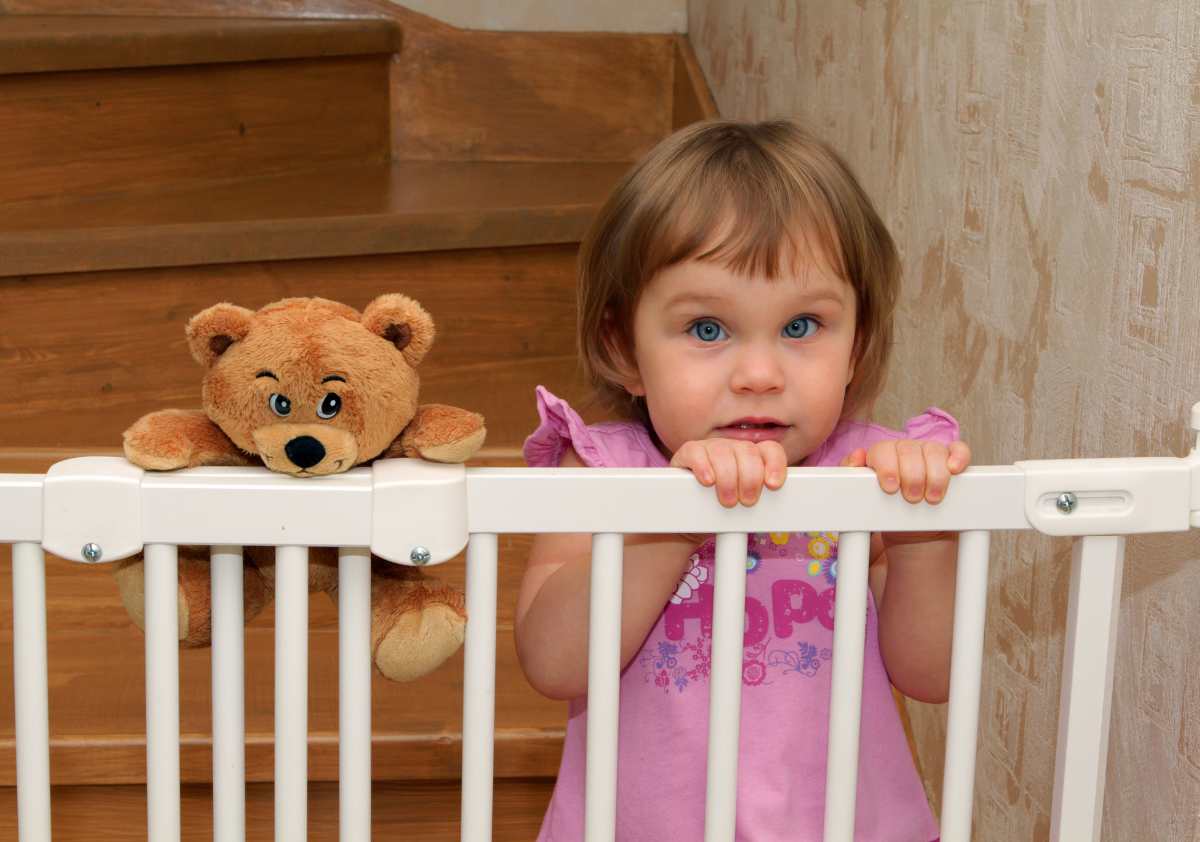
Managing Dog Behavior After Baby Comes Home
You did the prep, introduced your pup to the baby, and now real life begins. Between diaper changes, night feedings, and navigating sleep deprivation, managing your dog might feel like a stretch. But here’s the truth: your dog’s behavior during the first few weeks can make or break the long-term bond with your baby.
So how do you keep the peace, and your sanity? Let’s break it down.
Expect Some Acting Out (And Don’t Panic)
Even the best-behaved dog might regress a little. You could see things like:
- Ignoring basic commands
- Stealing baby toys or pacifiers
- Barking at crying or sudden movements
- Seeking attention through mischief (hello, sock thief)
This is normal. Your dog isn’t trying to be “bad”, they’re overwhelmed and adjusting just like you are. The goal is to respond calmly and consistently, not with frustration or punishment.
Maintain Routines Where You Can
Dogs thrive on routine, and while your life just turned upside down, you can still keep some structure. Try to stick to regular:
- Feeding times
- Walks (even short ones count)
- Daily check-ins or cuddle time
- Basic training refreshers
A bit of predictability reassures your dog that everything’s okay, even if the house is louder and sleep is in short supply.
Redirect, Don’t Punish
If your dog’s chewing baby toys, barking excessively, or guarding space, redirection works better than scolding. Offer an appropriate alternative:
- Chew toy instead of a teether
- Calming treat during loud crying spells
- Quiet time in a safe space when overstimulated
Positive reinforcement strengthens the behaviors you do want, while punishment can increase stress or confusion.
Supervise, Always
It doesn’t matter how calm or sweet your dog is, never leave them alone with your baby, even for a moment. Babies make sudden, high-pitched noises and unpredictable movements that can trigger a startled or defensive reaction, especially in tired or anxious dogs. Use gates, playpens, or a designated dog-free zone if you need a break.
Keep Enrichment Going
Mental stimulation is just as important as physical exercise. If walks are limited, try:
- Puzzle toys and treat dispensers
- Short indoor training sessions
- Frozen Kongs or lick mats during feeding time
This helps your dog burn off energy in safe, productive ways, and gives you a few precious minutes of peace.
Managing dog behavior after baby isn’t about being perfect. It’s about being patient, proactive, and consistent. The adjustment period is real, but it’s temporary. With structure and support, your dog will find their place in this new version of family life. We also have an article about how you can better bond with your new dog.
Finding The Right Pet
For parents considering adding a pet to their family, choosing the right fit is essential. Although a new puppy or kitten is adorable, they are also a lot of work and may not be the right fit for a busy family that does not have enough time for training and socialization.
Working with a well-informed rescue or adoption agency and your veterinarian is a great way to find a pet that will be best suited to your family’s needs and lifestyle. If you’re looking to add a furry friend to your household and don’t know which breed to get, check out our article on family-friendly dogs.
Be sure to look for a pet that is comfortable around children and introduce your new friend to the family gradually to reduce the risk of conflicts. With patience and lots of positive reinforcement, your new furry friend will soon be part of the family!
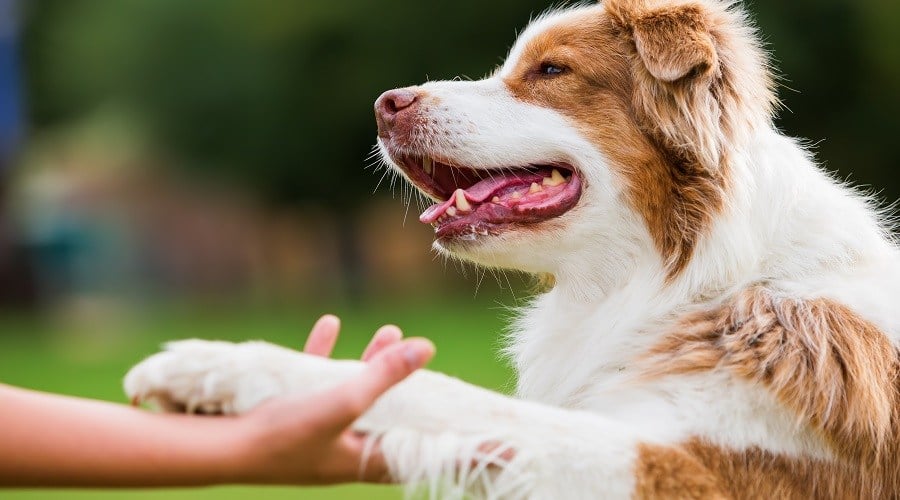
Myths About Dogs and Babies, Debunked
When it comes to mixing dogs and newborns, there’s a lot of advice floating around, and not all of it’s helpful. Some of it’s outdated, some’s fear-based, and some is just plain wrong. Let’s clear the air and tackle the most common myths about introducing dogs to babies and what you really need to know.
Myth 1: “Dogs Instinctively Know To Be Gentle With Babies”
It’s a sweet idea, but it’s not guaranteed. Some dogs are naturally calm, but others may feel confused, anxious, or even threatened by a baby’s sounds and movements. Dogs don’t automatically recognize a baby as part of the pack. That’s something you need to teach through gradual exposure and training.
Myth 2: “Small Dogs Are Safer Around Babies Than Big Dogs”
Not necessarily. A dog’s size doesn’t determine how safe they are around a baby. Temperament, training, and supervision matter far more. A well-trained large dog can be more trustworthy than a snappy little one that’s poorly socialized.
Myth 3: “If My Dog Growls At The Baby, They’re Dangerous”
Growling isn’t an attack, it’s a warning sign, and a useful one. It means your dog is uncomfortable, and it’s giving you a chance to intervene. The real danger? Punishing the growl, which might teach your dog to skip the warning next time and go straight to a bite. Learn to read your dog’s signals and respond calmly.
Myth 4: “Once The Baby’s Home, My Dog Will Just Adjust”
Wishful thinking. Adjustment takes time, structure, and consistency. Without prep, dogs can become anxious, jealous, or reactive. The good news? With a plan in place, most dogs adapt beautifully. But don’t expect instant harmony. Set realistic expectations and go at your dog’s pace.
Myth 5: “My Dog Was Great With My Niece/Neighbor’s Baby, So We’re Good”
Different environment, different rules. Being around someone else’s baby for an hour isn’t the same as living with one 24/7. Your dog may react differently when their space, routine, and attention are suddenly disrupted. Always reintroduce slowly, even if your dog has a great track record.
Believing these myths can set you up for disappointment, or worse, unsafe situations. The truth is, your dog can absolutely thrive alongside your baby, but only if you set them up for success with preparation, patience, and supervision.
More Tips From Animalist
The following video, courtesy of Discovery Channel’s Animalist, is a must-watch before you bring your new baby home.
Expert Tips To Create A Safe, Happy Dog-Baby Bond
Now that you’ve made it through the introduction and early adjustments, it’s time to think long-term. How do you move from managing your dog and baby to actually building a bond between them?
It’s not just possible, it’s powerful. With the right habits, your dog and your child can grow up with a strong, safe, and loving relationship. Here are some trainer and vet-approved tips to help get you there.
1. Make Baby A Source Of Good Things
Start early and consistently pair the baby’s presence with positive rewards. That could be treats, praise, petting, whatever your dog values most. Over time, your dog will associate the baby with good things happening, not lost attention.
2. Include Your Dog In Daily Routines
Dogs love structure and purpose, so give them a role. Have them join you on stroller walks, sit near you during feedings, or rest beside the playmat. Just make sure it’s calm, supervised involvement, not overstimulation.
3. Practice Calm Coexistence
Bonding doesn’t mean constant interaction. In fact, one of the most important things your dog can learn is how to be near the baby without needing to engage. Reward your dog for relaxed behavior while your baby is cooing, crawling, or just hanging out nearby.
4. Encourage Gentle Curiosity
If your dog shows curiosity like sniffing the baby’s foot, watching tummy time, let it happen in short, calm bursts. Supervise closely, keep energy levels low, and always end on a positive note.
5. Keep Up With Training
Now is not the time to let good behavior slide. Continue reinforcing commands like “leave it,” “stay,” and “place.” These tools give you control when you need it and keep your dog feeling confident and guided.
6. Make Time For One-on-One Connection
Your dog still needs your attention, and not just when the baby’s napping. Even five minutes of focused play or snuggle time a day reminds your dog that they’re still an important part of your life. This helps curb jealousy and maintains your bond.
7. Model Respect For The Dog As Baby Grows
As your child becomes more mobile, start teaching them (yes, even toddlers!) how to treat the dog gently. Respect goes both ways. Show your child how to give space, avoid pulling tails, and be kind. You’re building the foundation for a lifelong friendship.
With consistency, calm leadership, and trust, your dog and baby can grow into safe, happy companions. You’re not just managing two beings, you’re building a family unit where everyone has a place.
When To Seek Help From A Dog Trainer Or Behaviorist
Let’s be clear: asking for help doesn’t mean you’ve failed, it means you’re putting safety and sanity first. Sometimes, despite your best efforts, your dog just isn’t adjusting well to the baby. And that’s okay. Knowing when to bring in a professional dog trainer or certified behaviorist can make a huge difference before stress turns into a serious situation.
Signs It’s Time To Get Expert Help
If you’re noticing any of the following behaviors, it’s worth consulting a pro:
- Growling, snapping, or lunging near the baby
- Guarding behavior (toys, beds, or space around the baby)
- Obsession or over-fixation on the baby (hovering, stalking, pacing)
- Shut-down or depressive behavior that isn’t improving
- Regressions that aren’t responding to basic training
- You’re feeling fearful or uneasy about their interactions
You know your dog better than anyone, and if your gut says something’s off, trust it.
What Kind Of Help Should You Look For?
Not all dog trainers are created equal. Look for someone who:
- Uses positive reinforcement methods (not punishment-based)
- Has experience with dog-child integration
- Is a certified dog trainer or veterinary behaviorist
- Will work with you in your home environment, not just in a class setting
Your vet is a great first stop. They can rule out medical issues and refer you to trusted behavior professionals in your area.
Why Getting Professional Help Is Worth It
Early intervention prevents small issues from becoming major problems. A good trainer will not only help your dog adjust but will give you the tools to feel more confident as a parent and a pet owner. It’s not just about solving a problem. It’s about building a safer, more peaceful home for everyone involved.
There’s no shame in bringing in support, it’s smart parenting. With the right guidance, even challenging dog behaviors can be transformed into safe, positive habits that support your growing family.
Helping Your Dog Thrive As Your Family Grows
Welcoming a baby into your home is a big transition, for your family and your dog. As you navigate this new chapter, don’t forget to give your dog the comfort and care they deserve, too. A cozy, well-placed dog bed can create a safe retreat when things get overwhelming. Supporting your dog’s well-being starts from the inside out, so make sure they’re getting high-quality nutrition to stay healthy and energized. Want to strengthen the bond between your dog and baby? Stock up on the best treats to reward calm, gentle behavior and reinforce positive moments. And don’t overlook the basics. Regular health checks are key to catching stress-related issues early and ensuring your dog is ready for their new role as a big sibling.
We’d love to hear your stories about how your dog reacted to meeting your newborn? Share your experience in the comments and help other new parents feel supported and inspired.
Why Trust Canine Journal
Sally brings over 20 years of experience in human health sciences communications and has spent the past decade focused on pet health and behavior. As both a seasoned expert and a dog-loving parent, she’s passionate about helping families navigate big life transitions, like introducing a newborn to the family dog. At Canine Journal, Sally works alongside a dedicated team of canine professionals and fellow pet parents to research and test the best pet products for real-life situations, including growing families.
